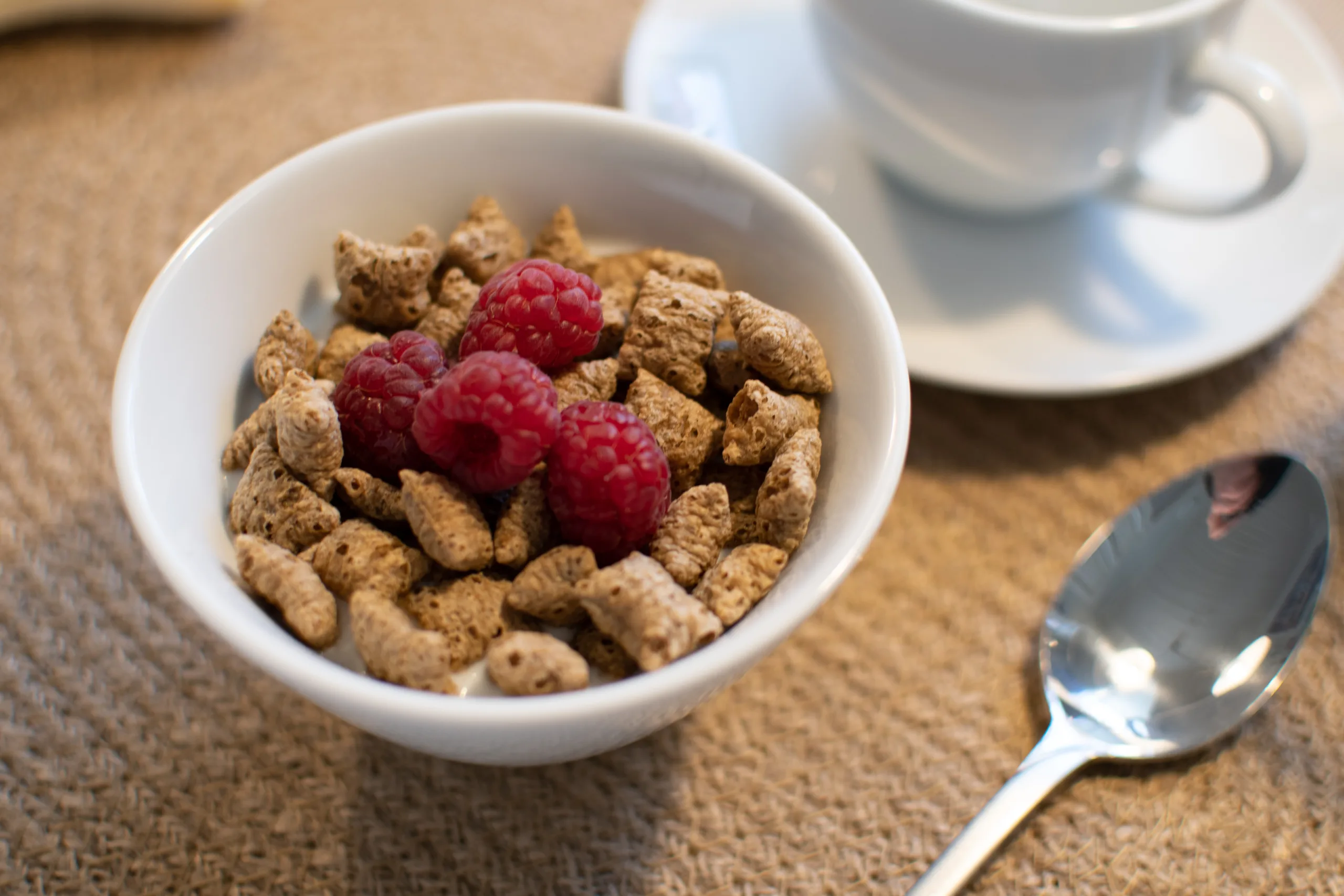Do you suffer from digestive issues like bloating, gas and abdominal pain? Are you looking for ways to improve your gut health? If so, you may have heard of the Low FODMAP Diet. But can you still enjoy coffee on this diet? In this article we will answer all of your questions about drinking coffee on a low FODMAP diet. We’ll discuss the types of coffee that are safe to drink, how to make it low FODMAP friendly and alternative beverages if you want to skip the coffee.
FODMAP is an acronym for Fermentable Oligosaccharides, Disaccharides, Monosaccharides, and Polyols: a collection of short-chain carbohydrates found in certain foods. The FODMAP diet is a dietary approach used to manage symptoms of irritable bowel syndrome (IBS). It involves avoiding foods that are high in FODMAPs and replacing them with low FODMAP options.
What Is Low FODMAP Diet?
The Low FODMAP diet is an elimination diet program designed to reduce symptoms of irritable bowel syndrome (IBS). It was developed by researchers at Monash University in Australia and is based on the concept that certain carbohydrates found in foods can cause digestive discomfort. The acronym FODMAP stands for fermentable oligosaccharides, disaccharides, monosaccharides, and polyols. These are short-chain carbohydrates that can be difficult for some people to digest. By avoiding foods high in these carbohydrates, the Low FODMAP diet can help reduce bloating, abdominal pain, gas, constipation and diarrhea associated with IBS.
The diet begins with an initial phase of eliminating all high FODMAP foods from the diet for a period of two to eight weeks. This is followed by a reintroduction period in which individual foods are added back into the diet one at a time to determine which ones cause digestive symptoms. A registered dietitian can help provide guidance on the process and offer support throughout the dietary changes.
Once the low FODMAP diet has been completed, it is important to ensure that all essential nutrients are being consumed on a daily basis. This includes adequate intake of fiber, vitamins and minerals found in fruits and vegetables as well as calcium-rich dairy products. A registered dietitian can also provide necessary guidance on how to follow a healthy balanced eating plan while still following a low FODMAP diet.
What Is Coffee?
Coffee is a brewed beverage made from roasted coffee beans, which are the seeds of berries from the Coffea plant. Coffee plants are cultivated in over 70 countries, primarily in the equatorial regions of the Americas, Southeast Asia, India and Africa. The two most commonly grown are the highly regarded arabica, and the less sophisticated but stronger and more hardy robusta. Once ripe, coffee beans are picked, processed and dried. Dried coffee beans are then roasted to varying degrees, depending on the desired flavor. Roasted beans are ground and brewed with near boiling water to produce coffee as a beverage.
Click here to preview your posts with PRO themes ››
Coffee is slightly acidic and can have a stimulating effect on humans because of its caffeine content. It is one of the most popular drinks in the world and can be prepared and presented in a variety of ways. It is usually served hot but may also be iced or blended with ice cream or other ingredients to create different beverages such as smoothies or frappes.
Is Coffee Low FODMAP?
Coffee itself is low FODMAP, however, if you add any milk or cream to your coffee it could be a problem. Milk and cream contain lactose, which is a type of FODMAP and can cause digestive distress for some people. If you are adding milk or cream to your coffee it is important to check the label to make sure it contains no added sugars or sweeteners, which can also be a source of FODMAPs. Additionally, some flavored coffees may contain artificial sweeteners or other additives that could trigger symptoms in some individuals. It’s best to opt for unflavored coffee if you are following a low FODMAP diet.
It’s also important to consider the quantity of coffee you are drinking when following a low FODMAP diet. Too much caffeine can have an effect on your digestion and cause gastrointestinal distress for some people. If you are sensitive to caffeine, it might be best to limit your intake of coffee as much as possible. Additionally, if you are adding milk or cream to your coffee make sure the quantity is limited so that it does not exceed the recommended daily intake for lactose.
Overall, coffee itself is low FODMAP but there are certain considerations that need to be taken into account if you want to ensure that you remain symptom-free while consuming it. Make sure any added ingredients such as milk and cream do not exceed recommended daily intakes and keep an eye out for potential sources of hidden sugars or artificial sweeteners in flavored coffees.
Benefits of Drinking Coffee on a Low FODMAP Diet
Drinking coffee on a low FODMAP diet can have many health benefits. As with any food or beverage, it is important to monitor your intake and be aware of any potential side effects. Caffeine is known to be a stimulant, so it is important to consume in moderation. Coffee can also contain trace amounts of FODMAPs, so it is important to pay attention to the type of coffee you are consuming and adjust your intake accordingly.
Coffee has been shown to potentially help reduce inflammation and improve digestion. It can also provide an energy boost, making it an attractive option for those on a low FODMAP diet who may be feeling tired or sluggish due to their dietary restrictions. Additionally, coffee can help promote the growth of beneficial bacteria in the gut and support overall gut health.
Click here to preview your posts with PRO themes ››
It is important to note that some people may find coffee difficult to digest, so it may be best to avoid it if this is the case. Additionally, people who are sensitive to caffeine should take extra precautions when consuming coffee and monitor their intake closely. As with any dietary change or addition, it is best to consult with your doctor before making changes to your diet or lifestyle.

What Types Of Coffee Are Low FODMAP?
Coffee lovers rejoice, because there are plenty of low FODMAP coffee options available! If you’re following a FODMAP diet, it doesn’t mean you have to give up your beloved cup of joe. There are many types of coffee that are low in FODMAPs, including espresso, cold brew and French press.
Espresso is a great option for those on the FODMAP diet. It’s made by forcing hot water through finely ground coffee beans, resulting in a strong and concentrated cup of coffee. Espresso has no added milk or sugar, so it’s naturally low in FODMAPs.
Cold brew is also a great choice for those on the FODMAP diet. Cold brew is made by steeping coarsely ground coffee beans in cold water for an extended period of time – usually 12-24 hours. This process results in a smooth and delicious cup of coffee that’s low in acidity and naturally lower in FODMAPs than other brewing methods.
Finally, French press is another delicious way to enjoy low-FODMAP coffee. The French press method involves steeping coarsely ground beans in hot water for several minutes before pressing the grounds out with a plunger. This method produces a robust cup of coffee that’s lower in acidity than other brewing methods and therefore naturally low in FODMAPs as well.
So if you’re following the FODMAP diet and don’t want to give up your morning cup of joe, fear not! There are plenty of delicious options available that are both low-FODMAP and full-flavored!
How Much Coffee Can You Have On A Low FODMAP Diet?
When following a low FODMAP diet, the amount of coffee you can have depends on the individual. Generally, it is recommended that those on a low FODMAP diet limit their intake of coffee to one cup per day. It is important to note that there are some high-FODMAP ingredients often added to coffee drinks, such as lactose and artificial sweeteners. Therefore, it is important to read labels carefully and be aware of what you are consuming. Additionally, if you are experiencing digestive symptoms such as bloating or gas after drinking coffee, it may be beneficial to reduce your intake or switch to a different type of drink.
When brewing your own coffee at home, it is best to use a filtered water and freshly ground beans as opposed to pre-ground or instant coffees. You may also want to choose an unsweetened variety or add your own sweetener if necessary. If you are looking for a different type of drink, there are several low-FODMAP alternatives available such as herbal teas, green tea or decaffeinated coffees.
Click here to preview your posts with PRO themes ››
Overall, it is important for those on a low FODMAP diet to pay attention to their individual needs when deciding how much coffee they should consume. Be sure to read labels carefully and opt for freshly brewed drinks when possible. Additionally, consider other alternatives if you experience any unpleasant digestive symptoms after having coffee.
Does Coffee Trigger IBS Symptoms?
IBS, or irritable bowel syndrome, is a common digestive condition that can cause a variety of symptoms, including cramping, abdominal pain, bloating, gas, and changes in bowel habits. Many people with IBS find that certain foods and drinks can trigger their symptoms. Coffee is one such food or beverage that may be a trigger for some people with IBS.
Caffeine is known to stimulate the digestive system and can cause spasms in the intestines. This may make symptoms of IBS worse in those who are sensitive to it. Additionally, coffee contains compounds called polyphenols which have been linked to worsening of IBS symptoms in some individuals. Some studies have found that coffee consumption increases the risk of developing IBS or makes existing symptoms worse.
However, it is important to note that not all studies agree on this issue and more research needs to be done. Furthermore, individuals may respond differently to coffee; while it might trigger symptoms in one person with IBS, it might not affect another person at all. For this reason it’s important for people with IBS to pay attention to how their bodies respond when they consume coffee and decide if they should avoid it or not.
In conclusion, there is evidence linking coffee consumption with worsening IBS symptoms in some cases; however more research needs to be done before any firm conclusions can be made. People with IBS should pay attention to their individual reactions when consuming coffee so they can decide if they should limit their intake or avoid it altogether.

Conclusion
It is possible to drink coffee on a low FODMAP diet, but it is important to be mindful of the ingredients. The most common ingredients that contain FODMAPs are milk and cream. Decaffeinated coffee is generally low in FODMAPs, but some brands may contain other ingredients that could trigger symptoms. If you are sensitive to FODMAPs, it is best to opt for a lactose-free milk or cream alternative and check the label for any high-FODMAP ingredients. Alternatively, drinking black coffee with no added flavourings or sweeteners can be a safe option for those following a low FODMAP diet.
Although coffee may not pose a major problem for most people on a low FODMAP diet, it is important to keep an eye on your intake and be aware of any potential symptoms that may arise. Everyone’s body reacts differently and some people may find they are more sensitive to certain foods than others. If you experience symptoms after drinking coffee, then it’s best to avoid it or reduce your intake.

